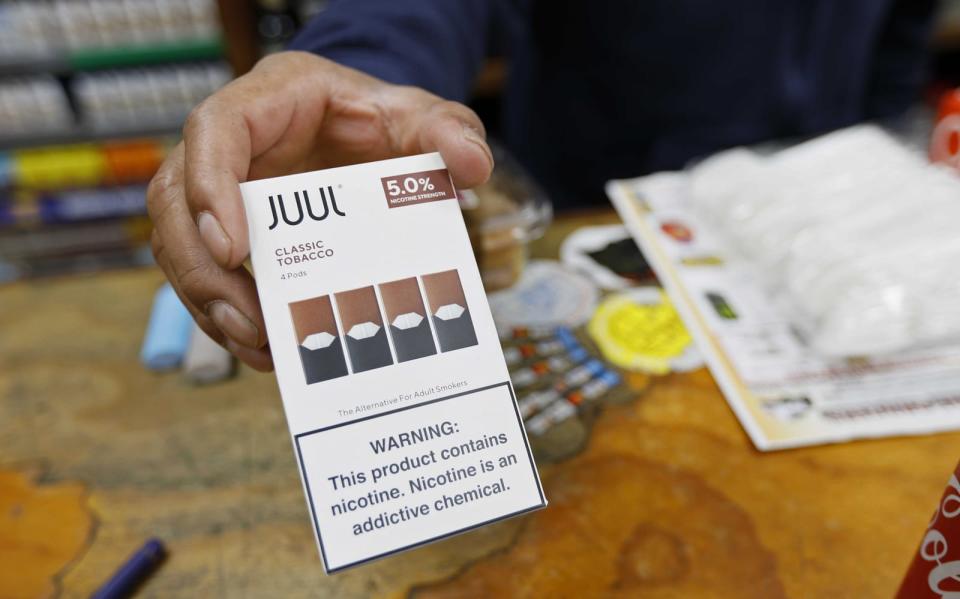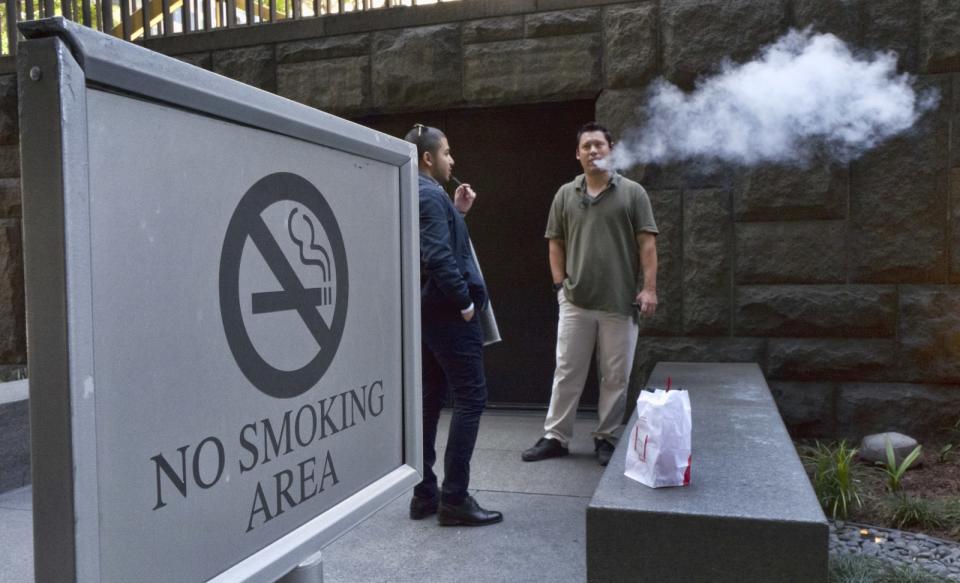San Francisco's grand plan to ban online e-cigarette sales
A vast majority of teenagers buy vape supplies online, not in stores.
Nearly 90 percent of all San Francisco high school students who vape get their fix by shopping online or through friends. Just 13.6 percent actually buy their pods at a physical store. The San Francisco Board of Supervisors is acutely aware of this teenage reality -- these statistics are laid out in Health Code ordinance No. 190312, which prohibits the sale of e-cigarettes in San Francisco, in person and online. The ordinance's authors are specifically concerned with curtailing e-cigarette use among the youth population, noting that the number of teenagers who had tried vaping at least once rose by 1.5 million from 2017 to 2018. The ban will last until the US Food & Drug Administration reviews the health risks of vaping, which likely won't happen until 2022.
The board passed the legislation on Tuesday, and San Francisco Mayor London Breed has 10 days to sign it. She's already said she will. When that happens, San Francisco will be the first US city to ban the sale of e-cigarettes.
But, in a digital-first world, what does vaping prohibition actually look like?

The ordinance will go into effect seven months after the mayor signs it, so likely in early 2020. When that happens, San Francisco plans to lodge a fine of $1,000 and penalties of up to $1,000 per violation at any retailer that sells e-cigarettes or flavored tobacco products to a city resident.
First, the city will reach out to tobacco distributors and inform them of the new rules, according to the office of the bill's co-author, Supervisor Shamann Walton.
"But every company is responsible for knowing and complying with the law," his Chief of Staff Natalie Gee said. "The Department of Public Health will respond to complaints about violations, and will work with the City Attorney to determine steps to investigate and monitor compliance."
The San Francisco Department of Public Health and City Attorney will work in tandem under the new law. The DPH will determine whether a retailer has sold e-cigarettes to someone in San Francisco, with the option to impose a maximum $1,000 penalty. The department can then report the infraction to the City Attorney's office for further injunctive measures and fines. There are no repercussions for San Francisco residents who purchase e-cigarettes online -- it's all on retailers.
San Francisco is officially the first US city to ban e-cigarette sales https://t.co/ELwsPsL1RW pic.twitter.com/3YRieA1GHe
— Engadget (@engadget) June 25, 2019
This is similar to the system in place to block online sales of large-capacity gun magazines in California. In 2017, San Francisco City Attorney Dennis Herrera sued five online gun equipment distributors for violating state and local law by selling "repair kits" that were, in fact, deconstructed large-capacity magazines. He won that suit, forcing the companies to update their websites with clear language about California law and remove the state as a shipping option. The companies collectively paid $22,500 to cover the city's investigation costs.
That was as statewide measure, while the online e-cigarette ban is a citywide ordinance, potentially complicating the process for suing non-local businesses. Other California cities are considering similar updates to their laws, including the Bay Area's Richmond and Livermore. Alex Knox, Chief of Staff for Richmond mayor Tom Butt, said the city was still considering ways to approach a ban on online sales of e-cigarettes, using San Francisco as an example.
In most US states, the legal age to buy tobacco products and e-cigarettes is 18, but in California, it's 21. It's already illegal for teenagers to buy e-cigarettes, but by the San Francisco board's own accounting, Bay Area high schoolers are vaping in record numbers. Online sales are a critical component of this market.
Of course, the ban also affects adult e-cigarette users, many of whom begin vaping to help quit smoking traditional cigarettes. Cigarette sales remain legal in San Francisco.
It's already illegal for teenagers to buy e-cigarettes.
Juul, the most prominent e-cigarette brand around, is headquartered on Pier 70 in San Francisco and it's launched a campaign against the new law. The company is trying to get an initiative on the November ballot that would supercede this week's ordinance and allow companies to sell e-cigarettes in stores and online once again. Juul has until July 8th to collect at least 9,485 signatures and make it on the ballot this fall.
Under San Francisco's new rules, it will be up to consumers and watchdogs to report websites willing to ship e-cigarettes to the city. There's no tracking mechanism to ensure vaporizers don't make it to San Francisco; there's no algorithm blocking websites from adding the city to its shipments. Just a threat of penalties if someone complains.
The ban on online e-cigarette sales is a roadblock, not a guaranteed braking mechanism. It's unclear if that matters either way, especially since most of the people targeted by the ban can't drive yet.



